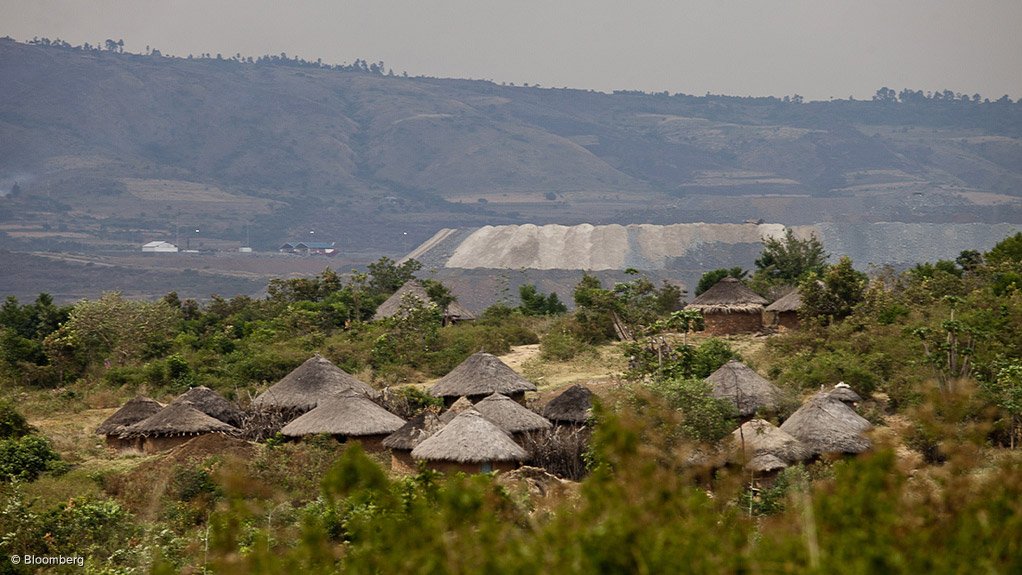Resettlement guidelines aim to instil formal processes, consistency


REDRESS FOR COMMUNITIES The guidelines outline the processes that must be adhere to, if the mining right results in physical resettlement of landowners, holders of informal and communal land rights, and other affected parties
Photo by Bloomberg
Companies and industry stakeholders have until January 31, 2020, to submit commentary on the Draft Mine Community Resettlement Guidelines (Draft Resettlement Guidelines), which were published for public comment on December 4, 2019, by Mineral Resources and Energy Minister Gwede Mantashe.
While law firm Fasken will not comment on the draft, it has assisted clients intending to submit representations or comments to the Department of Mineral Resources (DMR), says Fasken partner Godfrey Malesa.
He notes that, as South Africa does not have procedural guidance or a legal framework to regulate resettlement in the mining industry, current activity pertaining to the resettlement and compensation of displaced mining-affected communities is inconsistent and is often prejudiced in favour of the mining companies.
The inconsistencies have necessitated the development of guiding principles for the sector.
The Draft Resettlement Guidelines acknowledge that the Mineral and Petroleum Resources Development Act (MPRDA) has no explicit provisions for the resettlement of affected parties.
The guidelines outline the processes and requirements that an applicant or holder of a prospecting right, mining right or mining permit should adhere to, if the right results in the physical resettlement of landowners, lawful occupiers, holders of informal and communal land rights, and other affected parties.
“They . . . also apply to existing prospecting rights, mining rights or mining permits where incremental project expansion will result in the displacement or resettlement of affected parties,” he says.
Malesa adds that, in addition to providing formal processes and oversight for the resettlement of affected parties, the guidelines also provide a means of calculating the quantum for compensation.
“The guidelines make provision for the development of a resettlement plan, resettlement action plans and resettlement agreements,” he says, adding that provision for the monitoring and enforcement of the aforementioned plans and agreements are also included.
Owing to the Draft Resettlement Guidelines conforming to the internationally accepted resettlement guidelines, called the Resettlement Good Practice Handbook draft, published by the International Finance Corporation in March 2019, emphasis is placed on meaningful consultation, gender equality and the protection of rights.
“It calls for meaningful consultation and proper planning with the affected communities prior to and during . . . resettlement,” he says.
Malesa notes that the guidelines also acknowledge that there is no standard formula for determining sufficient compensation because of resettlement. As such, it stipulates that the rate of compensation for lost assets must be calculated at full replacement cost, including the market value of the assets plus transaction costs.
“It must be noted that the Draft Resettlement Guidelines do not constitute the legal enforceability of regulations and legislation. However, they still constitute formal guidelines,” Malesa states.
He points out that as the guidelines are intended to offer guidance, rather than impose legal obligations, the guidelines do not guarantee the effective implementation of resettlement plans.
Failure to adhere to the guidelines will not constitute a breach of the MPRDA. However, failure by a mining company to comply with the guidelines will likely lead to affected parties refusing to be relocated.
Moreover, failure to meet commitments made by the mining company and recorded in the resettlement agreement will constitute a breach of the resettlement agreement.
It will be used as a minimum basis for guiding resettlement of affected parties that are affected by mining operations.
Malesa stresses that mining companies have to understand that involving the affected communities and other stakeholders is integral to the resettlement process.
Mining companies have to not only negotiate compensation with affected parties but also consider proposed areas of resettlement, access to grazing land and timing in determining compensation.
“The Draft Resettlement Guidelines will have a positive impact on the industry . . . as they outline the identification of resettlement-related impacts, compensation and valuation considerations, livelihood restoration, as well as funding, implementation and monitoring.”
“They will serve as a single and coherent formal guideline,” Malesa states.
Meanwhile, he notes that one contentious aspect of the guidelines is the stipulation that no mining activity will start until a resettlement agreement has been reached with the affected parties.
However, the MPRDA does not impose obligation to reach agreement – it requires that parties engage in good faith.
Therefore, the Draft Resettlement Guidelines’ requirement to reach agreement on compensation prior to the start of mining activities is inconsistent with the MPRDA, but they “cannot contradict, or go further than, the MPRDA itself, it must be compatible with the enabling legislation”, Malesa states.
Notwithstanding the inconsistency between the Draft Resettlement Guidelines and the MPRDA, the guidelines are still feasible, he adds.
Malesa notes that, once the public comment period is closed, the DMR will consider the comments received and amend the Draft Resettlement Guidelines, if necessary.
The DMR will publish the guidelines in the Government Gazette, which will become applicable from the date it is published, when it is satisfied with the final version.
It might also elect to engage with various stakeholders before publishing the guidelines for implementation, he concludes.
Comments
Press Office
Announcements
What's On
Subscribe to improve your user experience...
Option 1 (equivalent of R125 a month):
Receive a weekly copy of Creamer Media's Engineering News & Mining Weekly magazine
(print copy for those in South Africa and e-magazine for those outside of South Africa)
Receive daily email newsletters
Access to full search results
Access archive of magazine back copies
Access to Projects in Progress
Access to ONE Research Report of your choice in PDF format
Option 2 (equivalent of R375 a month):
All benefits from Option 1
PLUS
Access to Creamer Media's Research Channel Africa for ALL Research Reports, in PDF format, on various industrial and mining sectors
including Electricity; Water; Energy Transition; Hydrogen; Roads, Rail and Ports; Coal; Gold; Platinum; Battery Metals; etc.
Already a subscriber?
Forgotten your password?
Receive weekly copy of Creamer Media's Engineering News & Mining Weekly magazine (print copy for those in South Africa and e-magazine for those outside of South Africa)
➕
Recieve daily email newsletters
➕
Access to full search results
➕
Access archive of magazine back copies
➕
Access to Projects in Progress
➕
Access to ONE Research Report of your choice in PDF format
RESEARCH CHANNEL AFRICA
R4500 (equivalent of R375 a month)
SUBSCRIBEAll benefits from Option 1
➕
Access to Creamer Media's Research Channel Africa for ALL Research Reports on various industrial and mining sectors, in PDF format, including on:
Electricity
➕
Water
➕
Energy Transition
➕
Hydrogen
➕
Roads, Rail and Ports
➕
Coal
➕
Gold
➕
Platinum
➕
Battery Metals
➕
etc.
Receive all benefits from Option 1 or Option 2 delivered to numerous people at your company
➕
Multiple User names and Passwords for simultaneous log-ins
➕
Intranet integration access to all in your organisation



















